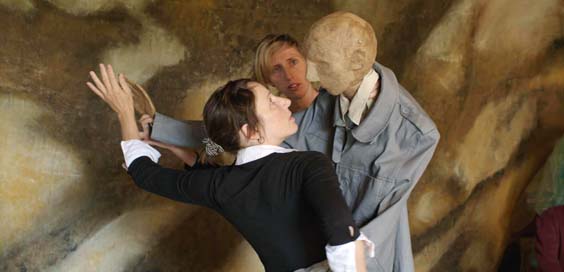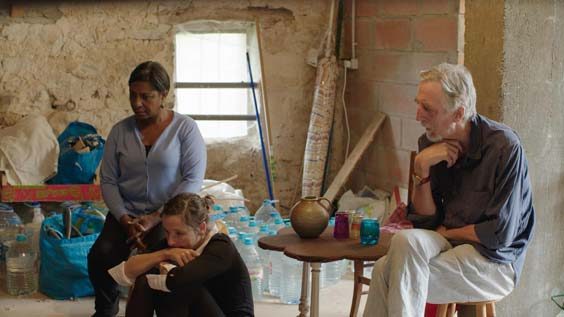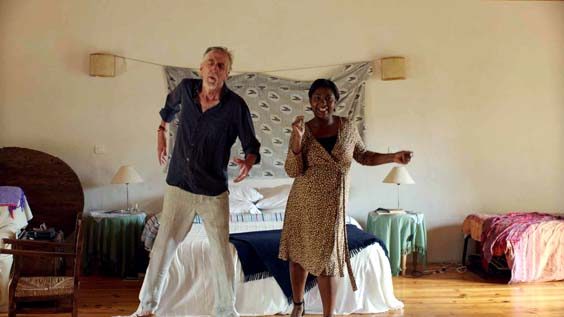A Change in the Weather (2017) – Film Review

Director: Jon Sanders
Cast: Anna Mottram, Bob Goody, Meret Becker
Certificate: PG
by Gregory Fishwick
A theatrical troupe gather in the French countryside in order to work on their latest production. At the heart of the group are Dan, the celebrated playwright/director and Lydia, an actress and Dan’s wife and collaborator of 40 years. It is at their secluded retreat in the mountains that the group gather but whilst their various forms of theatrical experimentation are geared towards discovering more of the work in progress, it invariably leads to self-discoveries as the lines between fiction and reality become blurred.
This is a very Rivette-esque piece, clearly inspired by the likes of Out 1 (1971), Céline et Julie vont en bateau (1974), L’Amour par terre (1984) and La Bande des quatre (1989) as well as many other classic French performance based films from the likes of Resnais, Godard and Truffaut. Perhaps therein lies the choice to shoot it in the Cathar countryside – and it certainly is a very charming looking film.
“Quietly compelling”
Despite having these very obvious influences and certainly not containing anything particularly original, credit must go to the film for never actually feeling derivative. It is, in fact, quietly compelling. Oddly, however, this doesn’t prevent it from also feeling somewhat uninspired, even if it is very watchable. This may well be due to the fact that, despite dealing with complex emotions (essentially, the drifting apart of a long term couple for no apparent reason and with still a great deal of affection between the two of them) it feels all very ‘on the surface’.
The parallels that are drawn between the performance and the reality are all too apparent, not subtle enough to add any sense of depth or intrigue to the relationships, unlike in the aforementioned French masterpieces. In fact, the theatrical aspect almost ends up feeling somewhat secondary to the proceedings, bringing little to the overall arc of the piece.
“Overly mannered”
Whats more, in the works mentioned above, the attitude towards the play within the play was always very knowing; mischievous, questioning, even cynical. Here, everyone (both behind the camera, in reality and in front of, in the context of the story) seems very invested in the drama that is being rehearsed, yet the play itself comes across as frivolous and dull, certainly never as clever as it perhaps thinks it is. With the absence of any Gallic objectivity, it comes across as slightly naïve and almost gauche.
Again, credit where credit is due. Every backstage drama always runs the risk of spilling into self indulgence and this never does. That’s not to say that it doesn’t occasionally come close to getting de-railed. Anna Mottram’s lead performance is simpering and overly mannered. And, perhaps appropriately for a film dealing with the notion of fiction vs. reality, there are issues regarding artifice.
Too many moments strain for naturalism (much of the dialogue is improvised by the cast) ironically resulting in the inevitable; an entirely unconvincing scene. The camera work is also, somewhat, self-conscious. But ultimately, it’s a film that has it’s heart in the right place. It’s a calm, quiet and never unpleasant journey.
6/10











